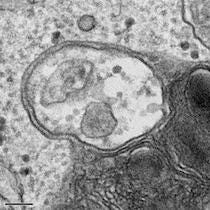It’s Friday, which means we’re almost at the end of another week of The Benedict Challenge. Starting on Monday, those who are participating will begin “16:8” fasting – 16 hours of fasting, and 8 hours of eating. Friday also means I’m hosting a short check-in call today at 5pm PT. This week, I’m opening it up to anyone who wants to join and inquire about the process, as well as those who are already on board.
Alright, without further ado, here’s a sample of the 4th chapter of the book.
A few years ago, a woman in my parish shared a story of miraculous healing—the kind you don’t hear every day. She had been diagnosed with a benign but sizable tumor, which required invasive surgery for removal. In preparation, she turned to a time-honored tradition within the church. She prayed and fasted with her husband and the priest of the parish for one week leading up to the procedure.
To the doctor’s surprise, on the day of the procedure, he found that the cancer had already shrunk from the size of a fist to that of a pebble, meaning that a much less invasive surgery was required.
He was at a loss for words, yet science and medicine are slowly beginning to catch up with the ancient wisdom that has long been known about fasting and its healing powers.
While this book is not primarily about the physical or health benefits of fasting, there is a danger in dismissing these benefits, especially when they coincide with spiritual objectives or serve to manifest God’s healing powers.
Fasting, as we have seen, is a bodily discipline—an embodied prayer—that helps us master our physical impulses and align our actions with our highest calling. We have also seen how an extreme penitential view goes against the views of the early fathers, including St. Benedict himself, who called on monks to embrace fasting out of love—not fear of retribution.
St. Paul refers to the Body as a temple—something sacred. Fasting, as we will see, is a way to purify the temple—to clear out the junk that may be obscuring our vision or weighing us down—to make room for more fervent prayer and devoted works of love.
Healing for the Whole Being
After transitioning to One Meal a Day, Adalbert de Vogüé described the profound sense of well-being he experienced:
“The last phase of the twenty-four-hour cycle, just before the evening meal, is marked by euphoria. A sense of freedom and lightness pervades my entire being, both body and mind.” (emphasis added)
This language—speaking about his entire being—suggests a transformation that goes beyond mere physical weight loss into the realm of mental and spiritual rejuvenation.
He observed, “In the afternoon, digestion saps the incomparable lightness characteristic of fast days.”
Some are uncomfortable putting fasting as a spiritual practice into the same box as scientific explanations or physical benefits.
But De Vogüé felt comfortable talking about the underlying biological reasons that fasting aids in our spiritual life. He notes that the brain, which oversees digestion, gets a reprieve during fasting:
“During a fast, the digestive system increasingly rests. Around ten hours post-meal, contractions halt, and hunger subsides; a few hours later, glucose production shifts from intestinal absorption to glycogen stores in the liver, initiating a self-sustaining energy circuit. This autonomy from external food sources fosters a nonviolent, detached state.”
This self-sustaining state, known as “autophagy” (self-eating), was identified in the 1960s and gained recognition with a Nobel Prize in 2016. During fasting, cells form autophagosomes, vesicles break down the oldest, most degraded proteins and recycle them into immediately usable energy within a cell. Autophagosomes are like Marie Kondos of the body—experts in The Life-Changing Magic of Tidying Up.
All life evolves within a forcefield of stressors—from the harsh elements to other conditions of deprivation and scarcity. Most of these stressors are cyclical or acute. We labor under the hot sun but then rest in the shade of night. We feast on the bounty of the hunt or harvest and then fast in preparation for the next.
Paradoxically, when you eliminate these cyclical stressors, the body ceases to function optimally, and in the extreme case, disease results. The body atrophies and allows the proliferation of all kinds of unbenign growth that would normally have been trimmed away during the hardship period in the stress cycle. Without some amount of stress, the body never has to “dig deep” and instead accumulates this intracellular junk, which accelerates the aging process.




